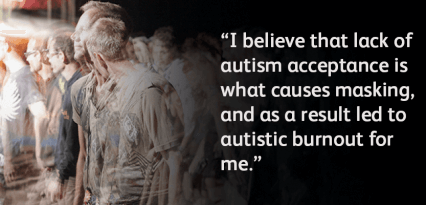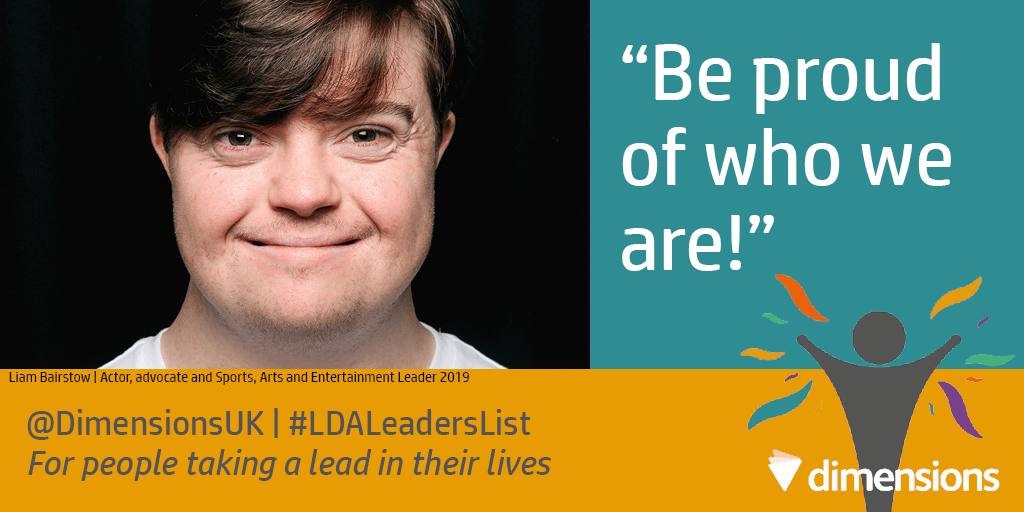Overcoming autistic burnout
In 2017, Andy experienced ‘autistic burnout’, which meant he had to drop out of university and realised that autism acceptance is the only way to be happy.
Andy spent a lot of time “masking” his autism – mimicking and copying other people, but sometimes without completely understanding the behaviour he was trying to replicate.
As you can imagine, this takes a lot of energy and contributed to his burnout.

Lack of self-acceptance for people with autism can have more severe consequences* :
- 35% of autistic adults have planned or attempted suicide
- 66% contemplated suicide
- 72% meet the psychiatric cut off point for suicide risk.
Andy doesn’t want other people to experience this, so he’s dedicating his time to improving the lives of other autistic people.
“I want everyone to know that it is ok to be autistic, and to help them to stop trying to fit in, and learn to live a ‘happy autistic life’.”
Supporting people online
A blog is a great way to share your thoughts, experiences and advice with people who you wouldn’t usually meet in real life. Andy realised this, and started his own to help people in the autistic community.
In his blog – Understanding Autistics – he is very honest.
Posts cover a range of issues, all giving a candid insight into life on the autistic spectrum and offering advice to overcome challenges and help people if you aren’t autistic.
“Executive functioning difficulties are very common in autistic people, which can result in difficulties in things such as: initiating actions, impulse control, planning, using working memory and inhibition…sometimes my brain actually thinks that watching Jeremy Kyle is more important than starting an assignment that is due the next day.”
Andy also recognised the importance of social media in reaching more people. His Facebook page (A Spectrum of Possibilities) has rapidly developed into a thriving community for people affected by autism.
In February 2018 page likes jumped from 400 to over 20,000!
He spreads a message that autism acceptance is about embracing the positives and negatives about living with autism.
#TakeTheMaskOff
Andy also used his page as a platform for sharing this music video, his contribution to the #TakeTheMaskOff campaign.
The lyrics reflect his experiences with one simple message – to accept yourself.
Autism isn’t expensive
Andy hasn’t stopped his digital work there; ‘Autism isn’t expensive’ is a project still in its early stages and he wants to share it with you.
‘Autism isn’t expensive’ will be a website about changing attitudes around autism and sharing the hundreds of free strategies to support autistic children in mainstream schools.
Parts of the website will be based around self-acceptance, peer acceptance, sensory, communication and more. He will also share advice and tips so that as many autistic children and young people as possible can be better supported in education.
Want a preview? Visit https://asop.org.uk
Supporting people offline
There is a far reaching autism community online because people from all over the place can come together.
But offline, it’s a different story. There’s a loneliness epidemic and Andy knows that there are people in his home city who need help, support and friendship.

Through his offline work, he is driving change and tackling loneliness by…
- joining families at meetings with schools to help ensure children are getting the right support
- volunteering and working with numerous organisations supporting children and young adults
- giving Education, Health and Care Plan (a plan which details the needs of a child/ young person, and puts provision in place to meet the needs of the child) advice, based on his own knowledge and experience of being an education line volunteer
- being part of strategic boards across Manchester
- running free talks and training courses about autism and sensory integration
- creating signs people can use in cafés to show they are happy for others to talk to them
- writing a book for autistic children to give them tips, tricks and helping them accept who they are
- running free meet ups for autistic people in Manchester, so young people can make friends as well as learning from the experiences of the adults who also attend
Andy is using his experiences to help others, make sure they don’t face the same challenges he has and make the world a better place for people with autism.
Andy’s story and success is inspirational. He’s driven by helping other people and understands that the digital world hasn’t overtaken the need for meeting people in person.











